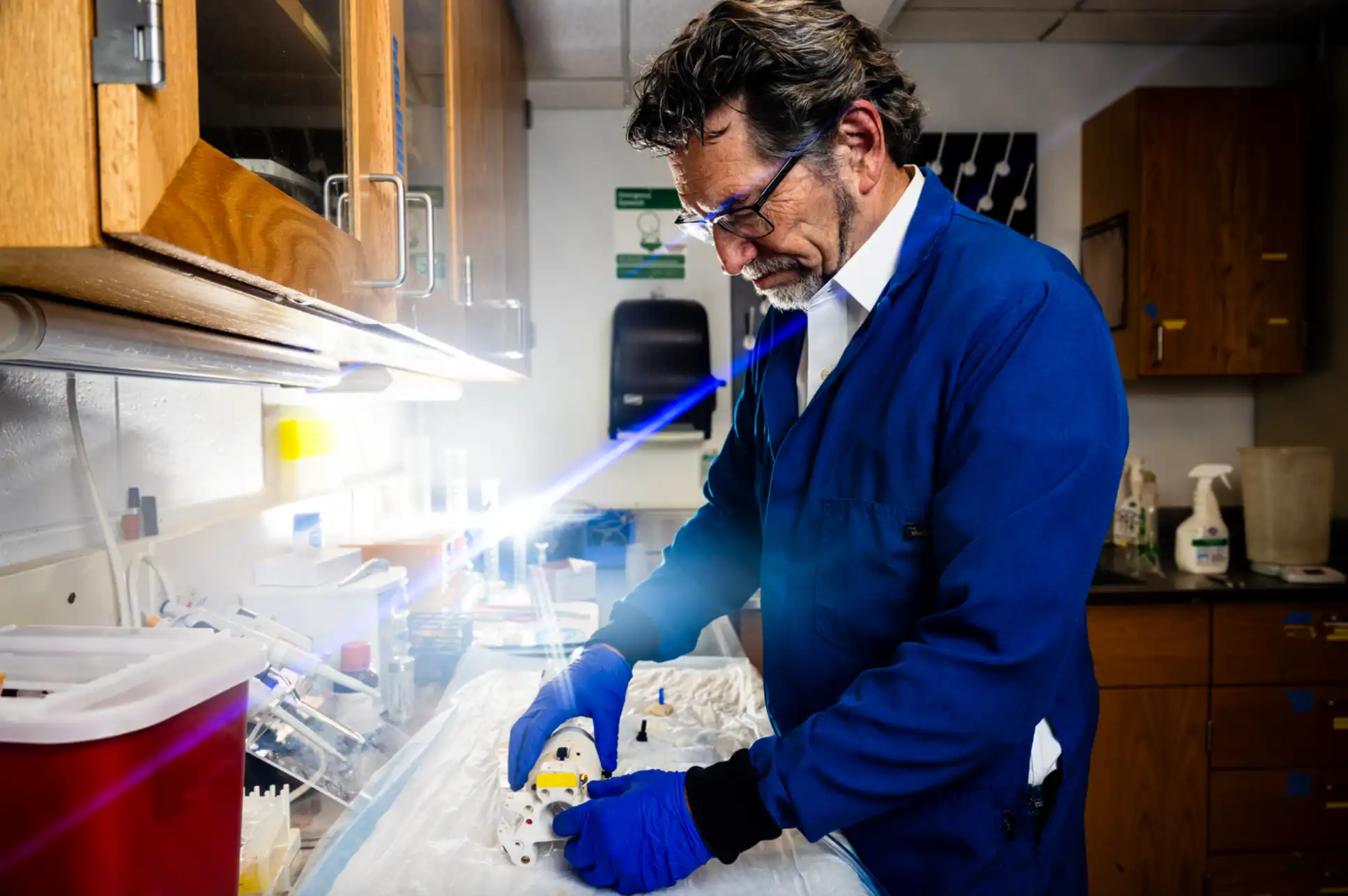By Erin Kayata
Genes play a role in whether someone gets Alzheimer’s, but new research from Northeastern University psychology and bioengineering professor Craig Ferris found that diet may have a greater impact on if someone gets this disease.
Ferris was part of a study published in BMC Neuroscience that looked at male and female rats, some of which had genes that can increase the risk for Alzheimer’s. The animals were put on high-fat, high-sugar diets to see which ones had the worst cardiovascular function by the end.
Despite females being at a higher risk for Alzheimer’s, the researchers found that male rats without a genetic risk for the disease showed the most deficits when it came to cognitive performance.
“We got the results and said ‘Wow, that’s not what we expected,’” Ferris said. “It was the normal guys eating McDonald’s that had all the problems.”




